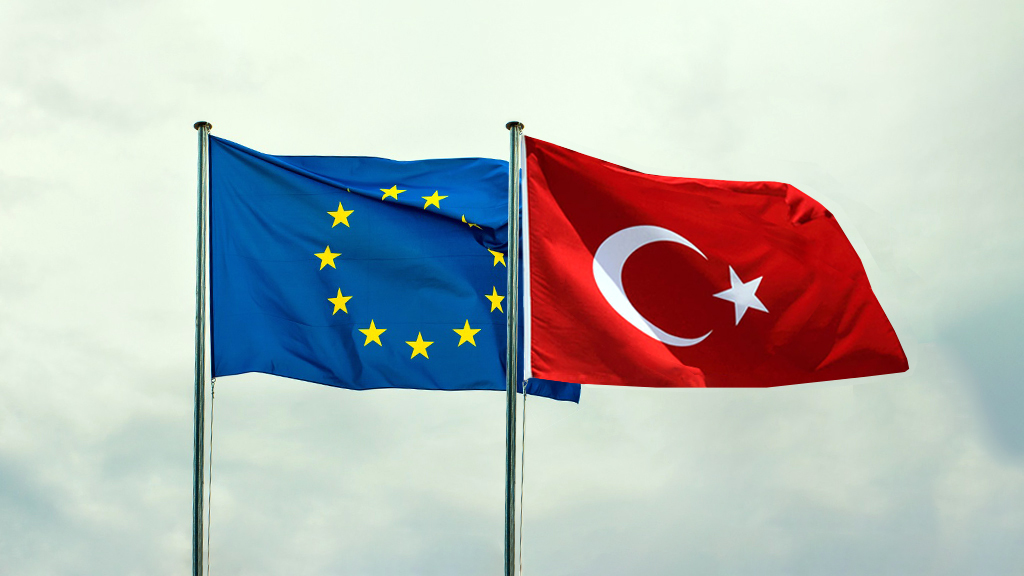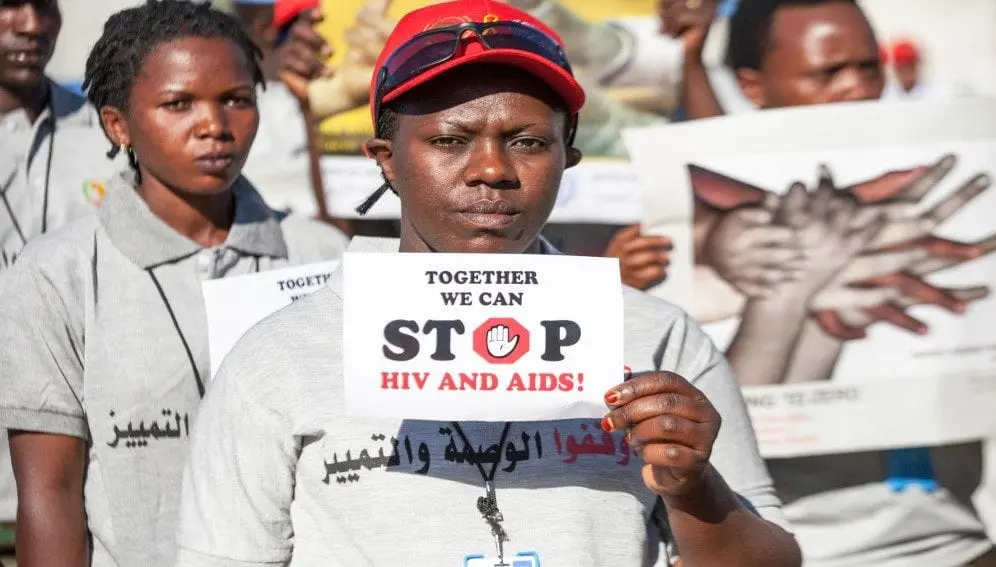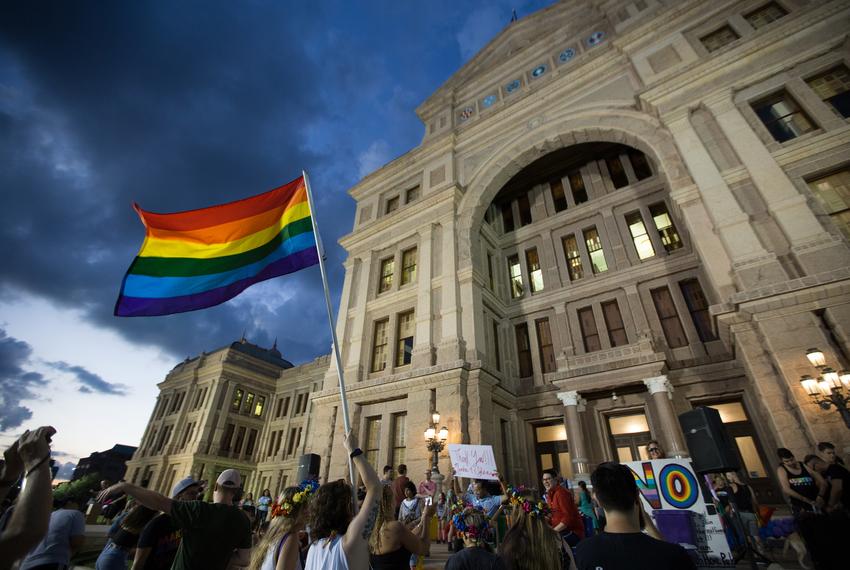In an unprecedented move, eight major nations—France, Canada, Denmark, Germany, Finland, the United Kingdom, the Netherlands, and Belgium—have issued travel advisories for the United States, sending shockwaves through the American tourism industry. These advisories, updated between March and April 2025, are not mere suggestions but official warnings that have already begun to reshape global travel patterns. The impact is profound, with U.S. tourism revenue facing a significant decline, as these countries, representing some of the largest sources of international visitors, urge caution. At the heart of this shift lies a single, seemingly bureaucratic detail: gender declaration requirements on U.S. visa and entry forms. This policy, combined with stricter immigration enforcement, has sparked a global reevaluation of the U.S. as a safe and welcoming destination.
This article delves into the causes, consequences, and broader implications of these advisories, exploring hidden truths, underlying tensions, and the economic and reputational fallout for the U.S. tourism sector. Through a detailed analysis, we uncover the complexities of this crisis and its potential to redefine America’s place in the global travel landscape.
The Surge in Travel Advisories: A Global Wake-Up Call
The issuance of travel advisories by France, Canada, Denmark, Germany, Finland, the UK, the Netherlands, and Belgium marks a turning point in international travel dynamics. These nations, collectively representing millions of annual visitors to the U.S., updated their travel guidance with a tone of urgency and specificity rarely seen in diplomatic relations with a close ally. Unlike previous advisories focused on issues like gun violence or natural disasters, these warnings center on U.S. immigration policies, particularly those affecting gender identity documentation and border enforcement.
Triggers of the Advisories
The advisories stem from a series of policy changes introduced under the Trump administration in early 2025. A key executive order, signed on January 20, 2025, mandated that federal agencies recognize only two genders—male and female—based on the sex assigned at birth. This policy directly impacts the Electronic System for Travel Authorization (ESTA) and visa application processes, which now require travelers to select a binary gender option that matches their birth certificate or other official documents. For transgender and non-binary travelers, this creates a significant barrier, as many have passports or IDs that reflect their current gender identity rather than their assigned sex at birth.
Denmark, for instance, explicitly warned that transgender individuals may be denied entry if their passport gender does not align with their birth-assigned sex. Finland echoed this concern, noting that U.S. authorities may reject ESTA or visa applications for those with non-binary gender markers, such as the “X” designation available in some European countries. Germany and Ireland advised travelers to consult U.S. embassies before departure, emphasizing that even valid visas do not guarantee entry. These warnings highlight a growing unease about the discretionary power of U.S. border officials, who can deny entry based on subjective interpretations of documentation.
Canada’s advisory, while broader in scope, focuses on a new requirement for visitors staying longer than 30 days to register with the U.S. Citizenship and Immigration Services (USCIS) using Form G-325R or I-94. This rule, previously unenforced, now imposes digital bureaucracy and potential penalties on millions of Canadian tourists, who contributed $20.5 billion to the U.S. economy in 2024. The advisory underscores the tightening of border controls, even for citizens of a nation with historically seamless cross-border travel.
The Role of High-Profile Incidents
High-profile incidents have fueled these advisories, amplifying public and governmental concerns. In one case, a French scientist was denied entry after U.S. border officials discovered messages on his phone critical of the American government. In another, a British tourist was detained for three weeks at a lesser-known border checkpoint, despite having valid documentation. A German permanent resident, returning from a business trip, reported being subjected to aggressive interrogation and treated as a suspect rather than a legitimate resident. These stories, widely reported in European media, have sparked outrage and prompted foreign governments to reassess their travel guidance.
“The final decision on whether a person can enter the U.S. lies with the U.S. border authorities,” a German ministry spokesperson said, highlighting the uncertainty travelers now face.
Such incidents are not isolated. Reports of detentions, deportations, and invasive screenings have proliferated, particularly affecting LGBTQ+ travelers and those with complex immigration histories. The emotional toll of these experiences—fear, humiliation, and uncertainty—has resonated globally, shaping perceptions of the U.S. as an unpredictable destination.
Economic Shockwaves: Quantifying the Impact on U.S. Tourism
The U.S. tourism industry, a cornerstone of the national economy, is reeling from the effects of these advisories. In 2023, international visitors spent $181 billion in the U.S., supporting millions of jobs in hospitality, retail, and transportation. However, the coordinated warnings from eight major nations threaten to disrupt this economic engine, with projections estimating losses in the billions.
Declining Visitor Numbers
Data from the International Trade Administration indicates a 12% decline in U.S. tourism compared to the previous year, with significant drops from key markets. Canada, which accounts for over 20 million annual visitors, has seen a 26% reduction in land travel and a 30% drop in airline bookings. European nations are following suit, with Germany reporting an 8.5% decrease in visitors in February 2025 compared to 2024, and France noting a 5.6% decline. The UK, another major source of tourists, recorded a 15% drop in arrivals in March 2025.
These declines are not merely seasonal. The World Travel & Tourism Council (WTTC) projects a $12.5 billion loss in U.S. tourism spending for 2025, driven by a 22.5% decrease from peak levels. Oxford Tourism Economics offers an even grimmer forecast, estimating losses of up to $90 billion if trends persist, factoring in reduced spending on flights, accommodations, and retail.
Impact on Specific Sectors
The ripple effects are felt across multiple industries. Airlines, including American, Southwest, and Alaska, have reported financial losses due to plummeting international demand. American Airlines alone posted a $473 million net loss in early 2025, citing weakened leisure travel from Canada and Europe. Hotels in major hubs like New York, Miami, and Los Angeles are experiencing lower occupancy rates, with some reporting a 5% decline in international bookings. Retail and hospitality businesses, particularly in states like Florida, California, and Nevada, are bracing for reduced revenue as Canadian and European visitors, who typically spend heavily, stay away.
Business travel, once a bright spot, is also faltering. Conferences and trade shows are seeing cancellations from international delegates, with a reported 18% drop in business travel from Western Europe and a 12% decline from Mexico. Tech firms in Silicon Valley note fewer in-person collaborations with European partners, while academic institutions report lower attendance at U.S.-hosted symposiums. These trends signal a broader contraction in the Meetings, Incentives, Conferences, and Exhibitions (MICE) tourism sector, which relies heavily on international participation.
Long-Term Economic Consequences
Beyond immediate losses, the economic fallout threatens long-term stability. The U.S. tourism sector contributed $2.36 trillion to GDP in 2023, accounting for 11% of the job market. A sustained decline in international visitors could lead to job losses, with estimates suggesting 14,000 jobs at risk in industries dependent on Canadian tourists alone. Gasoline demand has already dropped by 230,000 barrels per day, reflecting reduced travel, and crude oil prices are projected to fall further, impacting the energy sector.
The economic impact is compounded by geopolitical tensions, including Trump-era tariffs and trade disputes with Canada and the European Union. These policies have fueled boycotts, with Canadian Prime Minister Justin Trudeau urging citizens to prioritize domestic travel. The resulting decline in cross-border travel underscores the interconnectedness of economic and diplomatic relations in shaping tourism flows.
Reputational Damage: A Shift in Global Perception
The advisories are not just about policy changes; they signal a profound shift in how the world perceives the U.S. Once marketed as the land of opportunity, innovation, and openness, America is increasingly viewed as unpredictable, unwelcoming, and difficult to navigate. This reputational damage poses a long-term threat to the U.S. tourism industry, as traveler confidence—once eroded—is challenging to restore.
From Welcoming to Hostile
The U.S. has long prided itself on its diversity and inclusivity, attracting millions with its promise of cultural richness and opportunity. However, recent policies and border experiences have undermined this image. Stories of detentions, invasive interrogations, and entry denials have gone viral, amplified by social media and international media coverage. A single negative experience can deter hundreds of potential visitors, as professionals, influencers, and community leaders share their stories with global audiences.
“The image the U.S. has always projected is that we’re welcoming and diverse,” says Larry Yu, professor of hospitality management at George Washington University. “Recent events are making people think about how they see the U.S.”
For LGBTQ+ travelers, the advisories highlight a particularly stark contrast. Countries like the Netherlands and Belgium, known for progressive gender policies, have warned citizens about the U.S.’s binary gender requirements and varying state-level protections for LGBTQ+ individuals. These warnings resonate deeply, as they touch on issues of human dignity and personal safety.
Emotional and Psychological Toll
The emotional impact on travelers cannot be overstated. Professionals, academics, and thought leaders—many of whom travel to the U.S. for work—report feeling unwelcome and unsafe. The fear of being detained, interrogated, or turned away at the border creates a psychological barrier that deters travel. For transgender and non-binary individuals, the requirement to declare gender assigned at birth can feel like a violation of identity, adding to the stress of international travel.
These emotional scars have a ripple effect. Travelers share their experiences with peers, influencing decisions within their networks. In an era of instant communication, a single incident can trigger widespread hesitation, reinforcing perceptions of the U.S. as a hostile destination. This shift in sentiment is particularly damaging for business travelers, who value predictability and ease of entry when choosing conference or meeting locations.
Hidden Truths: The Broader Context of U.S. Immigration Policy
The travel advisories reflect deeper tensions within U.S. immigration policy, revealing hidden truths about the balance between security, inclusivity, and economic priorities. While the stated goal of these policies is to curb illegal immigration, their implementation has raised questions about fairness, transparency, and alignment with international norms.
The Politics of Immigration Enforcement
The Trump administration’s immigration crackdown, intensified in 2025, prioritizes stringent border controls and mass deportations. The executive order on gender recognition is part of a broader agenda to enforce “biological truth” in federal documentation, aligning with conservative values but clashing with global trends toward gender inclusivity. This policy has drawn criticism from civil society groups and international organizations, who argue it violates human rights standards.
State-level policies exacerbate the issue. Laws in Arizona, Georgia, and Alabama allowing police to request immigration status without cause have heightened fears among travelers, particularly those from minority groups. Ireland’s advisory specifically cautions citizens to carry documentation at all times, reflecting concerns about arbitrary enforcement and racial profiling.
Discretionary Power at the Border
A critical but often overlooked aspect of the advisories is the discretionary power of U.S. border officials. Even travelers with valid visas or ESTA approvals can be denied entry based on subjective judgments. This unpredictability is a key driver of the advisories, as foreign governments seek to protect their citizens from arbitrary treatment.
The lack of clear guidelines exacerbates the problem. While the U.S. Department of State insists that visa rules are enforced to protect national security, critics argue that the process lacks transparency and consistency. The German Foreign Ministry’s warning that “neither approval through the U.S. ESTA system nor a U.S. visa means people will be granted entry every time” underscores this uncertainty, urging travelers to prepare for unexpected outcomes.
Global Comparisons and Alternatives
The advisories also highlight a contrast between U.S. policies and those of other major destinations. Countries like Spain, Canada, and New Zealand, known for inclusive entry processes and progressive gender policies, are emerging as alternatives for travelers wary of U.S. border scrutiny. Spain, for instance, has seen a surge in European visitors, with a 5.3% increase in January 2025, while Canada’s tourism board reports growing interest from LGBTQ+ travelers seeking hassle-free destinations.
These comparisons reveal a competitive disadvantage for the U.S. In a global tourism market where ease of entry and inclusivity are paramount, the U.S.’s restrictive policies risk alienating key demographics, particularly younger and progressive travelers who prioritize social values in their travel choices.
Strategic Responses: Navigating the Crisis
The U.S. tourism industry faces a critical juncture, requiring coordinated action from tourism boards, airlines, hotels, and policymakers to mitigate the damage and restore traveler confidence. The following strategies offer a path forward, addressing both immediate challenges and long-term reputational concerns.
Tourism Boards: Rebuilding Trust
U.S. tourism boards, particularly those targeting European and Canadian markets, must launch proactive campaigns to reassure travelers. Clear communication about entry requirements, coupled with diversity and inclusion messaging, can counteract negative perceptions. Partnerships with foreign governments and embassies could streamline information sharing, ensuring travelers are well-prepared for border processes.
Regional tourism boards, such as those in Las Vegas and New York, face unique challenges. Las Vegas, which relies on international visitors for $1.5 billion in annual spending, could see a 5% revenue decline due to the advisories. Targeted marketing, emphasizing the city’s inclusivity and entertainment offerings, could help maintain its appeal.
Airlines: Adapting to New Realities
Airlines operating transatlantic and transpacific routes must adapt to shifting demand. Revising boarding protocols, training staff on U.S. entry requirements, and updating websites with real-time policy information can reduce traveler anxiety. Major carriers like Air France and Lufthansa have already reported declines in U.S.-bound bookings, underscoring the need for agility. Offering flexible cancellation policies and transparent communication could encourage hesitant travelers to book.
Hotels: Supporting Guests
Hotels near major ports of entry, such as airports and border crossings, should prepare for complex guest scenarios, including detentions or documentation issues. Staff training on cultural sensitivity and immigration policies can enhance guest experiences, while partnerships with legal aid organizations could provide support for travelers facing border challenges. Hotels in urban centers, where international visitors concentrate, should also invest in multilingual resources to address diverse traveler needs.
Policy Reforms: A Call for Change
Ultimately, the root of the crisis lies in U.S. immigration policy. Civil society groups, advocacy organizations, and corporate entities are urging the government to modernize its systems, adopting inclusive practices aligned with international standards. Allowing non-binary gender options on visa forms, clarifying border enforcement guidelines, and reducing discretionary power could restore confidence. Diplomatic engagement with allied nations, addressing their concerns about traveler treatment, is also essential.
Looking Ahead: The Future of U.S. Tourism
The travel advisories issued by France, Canada, Denmark, Germany, Finland, the UK, the Netherlands, and Belgium represent a watershed moment for U.S. tourism. The immediate economic impact—projected losses of $12.5 billion to $90 billion—underscores the urgency of the crisis, while the reputational damage threatens America’s long-term standing as a global destination. The emotional toll on travelers, particularly LGBTQ+ individuals and business professionals, adds a human dimension to the statistics, highlighting the need for empathy and reform.
As the summer travel season approaches, the U.S. faces a choice: double down on restrictive policies or embrace changes that restore its image as a welcoming destination. Destinations like Spain, Canada, and New Zealand stand ready to capitalize on America’s missteps, offering inclusive and predictable entry processes that appeal to modern travelers.
The world is watching, and travelers are waiting. The U.S. must act swiftly to rebuild trust, streamline policies, and reaffirm its commitment to openness. Failure to do so risks ceding ground in a fiercely competitive global tourism market, with consequences that extend far beyond the travel industry.






























0 Comments